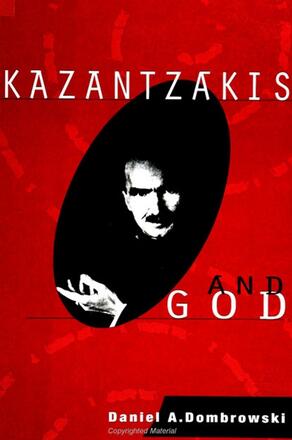
Kazantzakis and God
Alternative formats available from:
Description
Examines the concept of God which emerges from the writings of Nikos Kazantzakis and argues that he was a process theist.
Daniel A. Dombrowski is Professor in the Philosophy Department at Seattle University. He is the author of Analytic Theism, Hartshorne, and the Concept of God; St. John of the Cross: An Appreciation; and Hartshorne and the Metaphysics of Animal Rights, all published by SUNY Press, and well as Thoreau the Platonist; The Philosophy of Vegetarianism and Plato's Philosophy of History.
Reviews
"Dombrowski ranges widely over Kazantzakis's works in various genres--novels, poetry, travelogues, letters, treatises--and therefore has a complete, broad picture. He also treats Kazantzakis in relation to process theology, thereby greatly illuminating Kazantzakis's religious vision. Kazantzakis, well ahead of many, was a 'process theologian,' combining a view of God with a Darwinian assurance that everything (even God) evolves. This work is the first book-length study of this aspect of Kazantzakis. " -- Peter Bien, Dartmouth College
"Daniel Dombrowski has written a refreshing addition to the growing list of texts for Kazantzakis scholars, contemporary theologians, and modern Greek students desiring an exposure to Kazantzakis's maverick and controversial religious beliefs. The author's fascinating study of Nikos Kazantzakis's narrativised Bergsonian transformism is invaluable for the provocative way it helps melt the apparent glacial divide between Christian theology and modern literary fiction. With his own sense of Zorbatic verve, Dombrowski is the fair-minded arbiter of a lively exchange between the theological texts of contemporary process thought and the dramatic narratives of Nikos Kazantzakis. This book is informative and stimulating, and for even the reader acquainted with Kazantzakis he opens up new layers of meaning, without falling into the tempting trap of finding more than is there. For Kazantzakis lovers this is a thoroughly enjoyable read!" -- Darren J. N. Middleton, Rhodes College